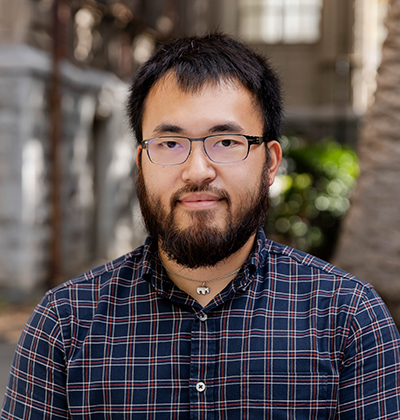Kent K. Chang
Ph.D. candidate
School of Information
Berkeley Artificial Intelligence Research
University of California, Berkeley
kentkc [at] berkeley.edu

Kent K. Chang is a Ph.D. candidate at the University of California, Berkeley (UC Berkeley), researching in natural language processing (NLP) and cultural analytics, advised by Prof. David Bamman at the School of Information and Berkeley Artificial Intelligence Research (BAIR).
Kent’s research sits at the intersection of NLP and cultural studies: he seeks to leverage theoretical and textual resources in the humanities and social science to improve systems and innovate new tasks in NLP, and, at the same time, offer researchers in relevant fields more tools to study language, social interactions, and cultural representation at scale.
news
- I’ll be offering a new course, Cultural Analytics (info 290), in Fall 2025 May 2025
- Passed my Qualifying Exam August 2024
- Featured on Berkeley I School website June 2024
- Selected as Outstanding Graduate Student Instructor April 2024
Preprints
“Multimodal Conversation Structure Understanding”
Kent K. Chang, Mackenzie Hanh Cramer, Anna Ho, Ti Ti Nguyen, Yilin Yuan, David Bamman (forthcoming 2026)
EACL 2026 main conference
arXiv
Publications
“Subversive Characters and Stereotyping Readers: Characterizing Queer Relationalities with Dialogue-Based Relation Extraction”
Kent K. Chang, Anna Ho, David Bamman (2024)
CHR 2024
arXiv
“On Classification with Large Language Models in Cultural Analytics”
David Bamman, Kent K. Chang, Li Lucy, Naitian Zhou (2024)
CHR (Computational Humanities Research) 2024
arXiv
“Speak, Memory: An Archaeology of Books Known to ChatGPT/GPT-4”
Kent K. Chang, Mackenzie Hanh Cramer, Sandeep Soni, David Bamman (2023)
EMNLP (Empirical Methods for Natural Language Processing) 2023
ACL Anthology
repo
“Dramatic Conversation Disentanglement”
Kent K. Chang, Danica Chen, David Bamman (2023)
ACL (Association for Computational Linguistics) 2023 Findings
ACL Anthology
repo
“The Queer Gap in Cultural Analytics”
Kent K. Chang (2023)
Debates in Digital Humanities 2023
open access
“Feminist Bestsellers: A Digital History of 1970s Feminism”
Michelle Moravec and Kent K. Chang (2021)
Post45 × Journal of Cultural Analytics
open access
“Divergence and the Complexity of Difference in Text and Culture”
Kent K. Chang and Simon DeDeo (2020)
Journal of Cultural Analytics
open access
repo
“Book Reviews and the Consolidation of Genre”
Kent Chang, Yuerong Hu, Wenyi Shang, Aniruddha Sharma, Shubhangi Singhal, Ted Underwood, Jessica Witte, Peizhen Wu (2020)
DH (Digital Humanities) 2020
hcommons
Teaching
Graduate Student Instructor, UC Berkeley
- “Cultural Analytics” (info 290): Fall 2025.
- “Applied Natural Language Processing” (info 256): Fall 2023, Fall 2024.
- “Natural Language Processing” (info 159/259): Spring 2023.
- “Information Organization and Retrieval” (info 202): Fall 2022.
There are two gates of Sleep, one of which, they say,
Is made of horn and offers easy passage
To true visions; the other has a luminous, dense
Ivory sheen, but through it, to the sky above,
The spirits of the dead send up false dreams.
—Aeneid VI, ll. 1212–16 (Seamus Heaney tr.)
Ariel The Romans? Where are they now?
Tony You’re looking at them, asshole.
—David Chase, The Sopranos, I.iii (1999)
Jerome Weidman was there that day, and later he described what happened next in a magazine article. I wish I could write so poetically. All I can say is I stood on that stage and went into my own inner world, forgetting anyone else was there.
Softly, in a voice as true as a plumb line and pure as the soap that floats, with the quiet authority of someone who had seen the inevitable, as simply and directly and movingly as Homer telling about the death of Hector, she told the haunting story of a girl who had stayed “too long at the fair.” It was a song, of course, and a good one. But emerging through the voice and personality of this strange child, it became more than that. We were hearing music and words, but we were experiencing what one gets only from great art: a moment of revealed truth.There was silence after I finished the song. Then they asked me to sing another, and another.—Barbra Streisand, My Name is Barbra (2023)